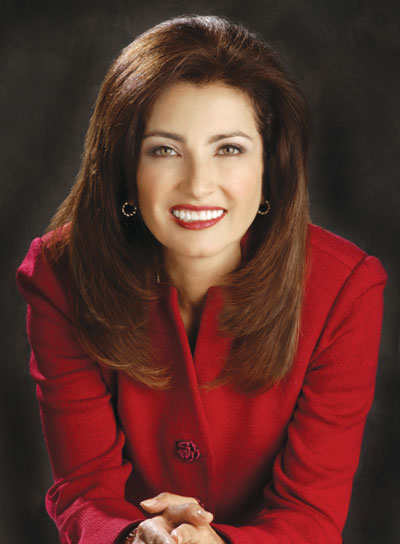County Commissioner Elba Garcia wants to include everyone, but with no federal mandate, governments find it hard to expand their programs

INCLUSION | Parkland Memorial Hospital says its program does not include the LGBT community. Dallas County Commissioner Elba Garcia says she wants to include everyone.
Last month, Parkland Memorial Hospital was recognized for its commitment to supplier diversity. A quick email to a hospital spokeswoman about whether any LGBT companies were included among its diverse suppliers drew a terse response.
“Our program does not include the LGBT community,” Indria Hollingsworth, Parkland’s director of supplier diversity and ethical sourcing, wrote in an email. “We are governed by County Code and the focus of the County Code is ethnic minority and women owned business enterprises.”
Indeed, county code does define minority business as a company that is “at least 51 percent owned by minority persons, or in the case of publicly owned businesses, at least 51 percent of stock is owned by one or more minorities.”
Minority is defined as well. “Minority persons include Black, Hispanics, Asian-Pacific Americans, Asian-Indian Americans and Native Americans.”
A separate category for women is included.
Finally, the hospital district has a nondiscrimination policy regarding its suppliers.
“The district, its contractors and subcontractors shall not discriminate on the basis of race, color, religion, national origin, sex, age or physical handicap in the award and/or performance of contracts.”
By current national definitions, sex discrimination includes the transgender community. The hospital’s nondiscrimination policy does not include nondiscrimination based on sexual orientation.
So while choosing between two Hispanic suppliers, for example, the hospital might decide to choose the straight over the gay supplier and not be violating the County Code.
The hospital’s employment nondiscrimination policy, however, does include sexual orientation and in 2013 was expanded to include gender identity and expression.
The county and hospital have funded a half million-dollar disparity study to find inequities. Commissioner Elba Garcia said the city did something similar while she served on the Dallas City Council and she was surprised the county hadn’t done this.
“Our goal has been to include everyone,” she said.
She said the study will take until the end of the year, and she was more concerned with them doing a thorough job. She’s already passed along suggestions from several community leaders who have called her about the issue and said she thinks recommended changes will be implemented.
“The court knows it’s something we need to do,” she said.
Resource Center Communications and Advocacy Manager Rafael McDonnell has been in touch with Garcia’s office and asked about several areas of disparity the city is fixing. Among those are family medical leave and bereavement leave.
When an employee takes off under the FMLA act, it is unpaid leave that allows the person to care for a parent, child or spouse. Under current policy, an LGBT employee would be given leave for a parent or child, but not for a spouse.
Assistant County Administrator Gordon Hikel said the county currently has a good faith program. He said that means it has no teeth.
He said the legal basis to make programs more inclusive comes from a 1989 Supreme Court decision. The justices wrote that set-asides are suspect, unless a study shows past discrimination the governmental body wants to remedy, Hikel said.
“The problem is the Supreme Court hasn’t ruled that LGBT is a suspect class,” Hikel said.
For the classes already listed in the County Code, the remedy is different.
“If the study shows, yes, we have discriminated, we can set numerical goals,” he said.
Tony Vedda, president and CEO of the North Texas GLBT Chamber of Commerce, has been in touch with the commissioners court about its supplier certification program. That program is administered by the National Gay and Lesbian Chamber of Commerce. He agreed with Hikel on mandates for LGBT suppliers.
“There’s no federal requirement for doing an LGBT spend,” Vedda said.
He noted just as corporations did with providing partner benefits, they are leading the way in supplier diversity.
When IBM wanted to do business with gay and lesbian companies, the National Chamber developed a certification program. Now, more than 140 corporate partners look for that LGBT-certified designation.
Vedda said the program is still new, and less than 1,000 companies have been certified throughout the U.S.
Gaining certification requires an application disclosing financial information and ownership information proving the company is at least 51 percent LGBT owned and operated, followed by a site visit. Vedda said locally he or Tim DeWitt, a former North Texas GLBT Chamber board president, will conduct the visit.
Should Dallas County decide to include LGBT companies in its diverse supplier program, despite lack of federal inclusion, at least 25 local companies have already qualified.
This article appeared in the Dallas Voice print edition May 9, 2014.


